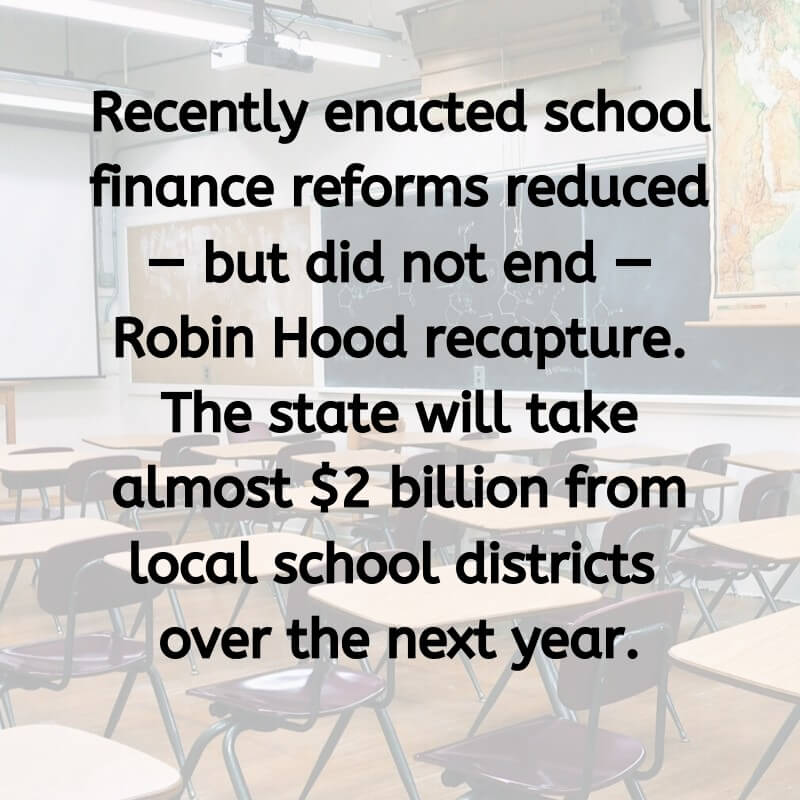
School finance reforms enacted in 2019 reduced recapture
- Recapture is the process by which the state takes some of the local property-tax revenue collected by school districts with relatively high property values per-student.
- The recapture system is more commonly known as Robin Hood.
- The Legislature put $6.4 billion in new state revenue into schools though 2019’s House Bill 3. The bill also reduced local property tax rates.
- Both of these changes made education funding less reliant on local property taxes. When the system relies less on property taxes, statewide recapture decreases.
Recapture has diminished. It has not ended.
- The state will collect $1.9 billion in local property taxes through recapture over the next year, which is 29% less than the previous year, but still a significant amount.
- 141 school districts are still required to pay recapture this school year.
- While school districts are sending away fewer dollars through recapture, they are also collecting fewer dollars from local taxpayers because property tax rates are now lower.
Lowering property tax rates does not make recapture go away.
- School districts cannot make their recapture obligation disappear by lowering the property-tax rate, because recapture is primarily based on the district’s per-student property wealth and not its tax rate.
- School funding levels are tied to a school district’s tax rate. Lowering the tax rate would take local and state resources out of local classrooms.
The new dollars for schools in House Bill 3 come with strings — and uncertainty.
- The state’s increased investment in schools did not benefit all districts equally. Some districts saw 15 percent funding increases. Some saw 3 percent funding increases, or less.
- The Legislature required much of the new funding to be spent on certain priorities, from employee pay raises to prekindergarten to career and technical education.
- The state is committed to further reducing local property-tax rates in the future, which will further diminish recapture payments and also create a school-funding hole that the state must fill with new dollars or with funding cuts.
Recently enacted school finance reforms reduced — but did not end — Robin Hood recapture. The state will take almost $2 billion from local school districts over the next year, which continues to put a heavy burden on local taxpayers while limiting resources available for local schools.

